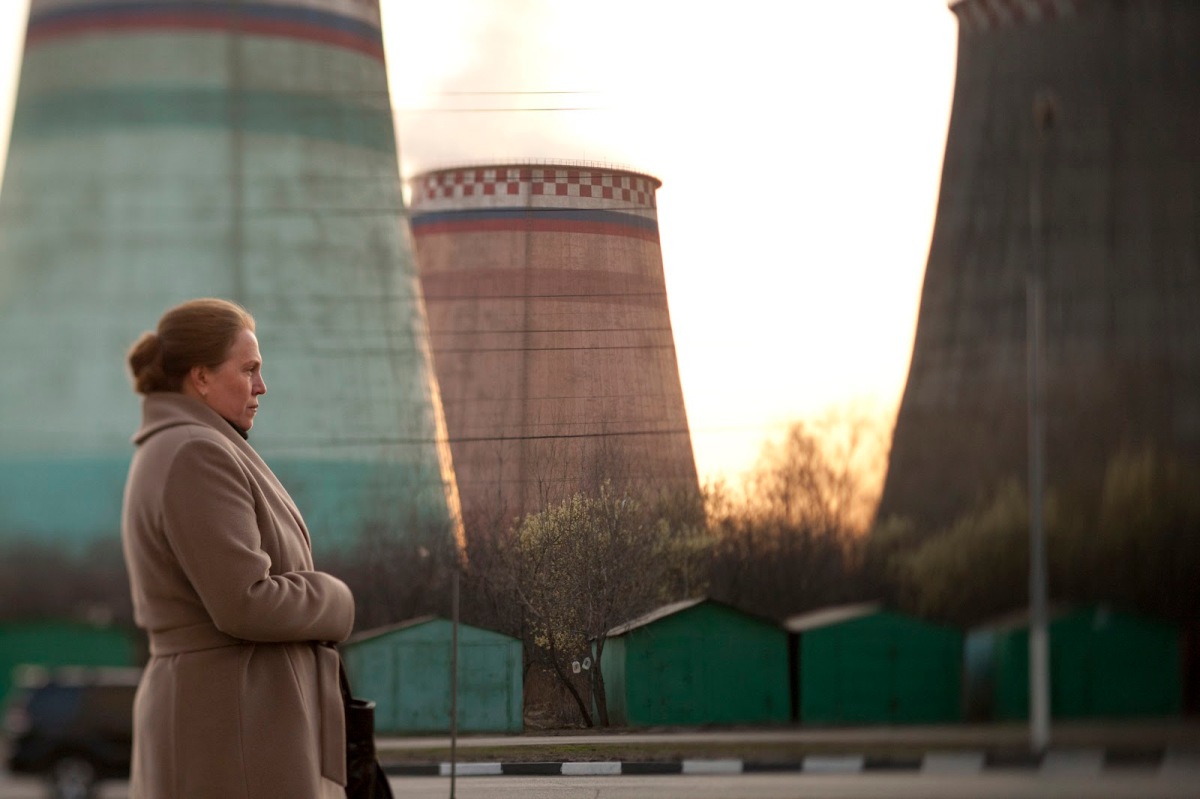Directed by Andrey Zvyagintsev.
2011. Not Rated, 109 minutes.
Cast:
Nadezhda Markina
Andrey Smirnov
Elena Lyadova
Aleksey Rozin
Evgeniya Konushkina
Igor Ogurtsov
Igor Yurtaev
Elena (Markina) is a retired nurse in her sixties. She has been married to the wealthy Vladymir (Smirnov) for 2 years. Their life together is fairly mundane, driven by routine. They get along fine and stay out of each other's way. In fact, they even sleep in separate beds. This movie isn't about that. After all, we find out they do still have the occasional roll in the hay. This is about the one real point of contention in their relationship: Elena's son Sergey (Rozin). Sergey is married with a couple kids. He also hasn't worked in who knows how long and is constantly asking his mom for money. In turn, Elena usually has to ask Vladymir. After grumbling and objecting, Vlad usually forks over the cash. Sergey is aware of all this and his latest request is a doozy. It concerns his oldest child who has botched his schooling so bad it seems the military will be his only option. Not wanting that, Sergey asks mom for enough money to basically by his son's way into college. When Vlad gets word of this, he puts his foot down. However, after his wife begs and pleads, he says he'll think about it some more and give her an answer in a week. The next couple weeks ensue.
The director goes out of his way to create the feeling that we're really traveling through Elena's life with her. He does something in a way most movies haven't the courage to try. For instance, right at the beginning we witness her wake to her alarm, contemplate moving for a moment or two, stretch, go put some tea on, enter her husband's bedroom, yank the curtains apart, wake him, etc. When she leaves to go visit Sergey and his family we watch her walk down streets, stop at the store, and so on. It sounds tedious, and for some viewers it will be, but the way the director edits it her day feels like a journey to a coveted destination. The wonderfully subtle performance by Nadezhda Markina bolsters that feeling. She doesn't sprint from place to place, but she certainly moves with purpose. She has given herself a schedule. Anything that throws it off bothers her. It is no surprise that she is clearly upset when the store clerk has to call for assistance. This establishes who she is - an orderly person who is devoted to those she loves.
Great pains are also taken to establish Vladymir and his relationship with Elena. Though he's wealthy, undoubtedly having worked all his life, and stubborn, he is now someone who must be cared for. We rarely see him actually moving. It's a bit of a struggle when he does. He trudges from his bed to the bathroom. The one time we see him extend himself he has a heart attack. Both before and after this, he seems to spend most of the day in bed with Elena bringing him meals and cutting off the television when he falls asleep. To carry his feebleness a step further, the director does something really interesting that could easily have wound up on the cutting room floor. A few days after Vlad's heart attack we see Elena wheeling him out of the hospital room for the final time. Instead of immediately cutting to whatever is next in their lives, we stay in that room. The nurse comes in and assumes Elena's role for the rest of this scene by preparing it for the next patient. The key is that we understand Elena has little more personal connection to Vladymir than the nurse. She's just cleaning up after him. There exists a distance between them. Remember, they sleep in separate beds. Neither works, but they go their separate ways every day. This distance is likely a major factor in the decision that turns the movie. On the flip side is Vlad's daughter Katya (Lyadova). She's a free spirit. More importantly, she doesn't take care of her father and their relationship is strained seemingly because of this fact. Her name is invoked in conversation often by Elena, who doesn't like her. Why should she? Elena is taking care of the man his own daughter refuses to. Vladymir gets angry when any of this is brought up, but calls for his daughter when he is at his weakest.
This is all a fascinating set up for an intriguing finale. Our feelings about Elena change. The first question is can we understand and/or sympathize with her position? Other questions follow. Do the ends justify the means? Thanks to an at-first cryptic final shot, we have to ask ourselves are the ends truly the end? It could simply be the perpetuation of a cycle. We can also ask ourselves would we do what Elena does? However, the more appropriate question is could we? Making all of this swirl around in our head is the genius of this movie. It goes about its business in a rather ho-hum manner. This makes it a slow burn rather than a heart pumping burst of energy. Those of us without much patience might dismiss this film too soon. After all the morning routine dominates the first act and things like it routinely occur. None of it immediately stands out as remarkable. The things that break that routine stand in stark relief, drawing attention to both. However, they don't happen at all rapidly, making it easy to tune out early. That would be a mistake. Elena is a movie that requires you to put on your thinking cap, but is not complicated. Just stick with it.



No comments:
Post a Comment